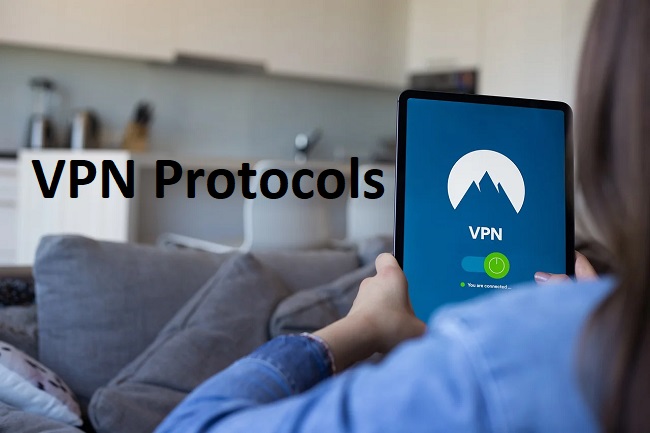Virtual Private Networks (VPNs) are increasingly popular tools for ensuring online privacy and security. However, not all VPNs are created equal. The secret lies in their core — the VPN protocols they use.
These protocols define how data is transmitted through a VPN, influencing its speed, security, and reliability. Let’s explore the different types of VPN protocols to help you make an informed choice.
Behind every secure VPN connection, there’s a robust VPN protocol doing the heavy lifting. Understanding the different types of VPN protocols can help you choose the right VPN service for your specific needs.
Let’s delve into the world of VPN protocols, exploring their intricacies, and learn which protocol might be the best for you.

Different Types of VPN Protocols
While there are numerous VPN protocols, the following are the most commonly used:
1. OpenVPN:
OpenVPN is widely regarded as the most secure and versatile VPN protocol. It’s open-source, meaning it’s continually refined by a global community of volunteers.
It supports a high level of encryption, offering strong security. While it’s not the fastest protocol, it provides a good balance between speed and security.
2. Internet Protocol Security (IPsec):
IPsec is used to secure internet communication across an IP network. It can work in two modes: Transport (securing data packets between devices) and Tunnel (securing communication between networks). It’s often used in conjunction with other protocols like L2TP and IKEv2 to provide encryption.
3. Layer 2 Tunneling Protocol (L2TP):
L2TP doesn’t provide encryption itself. Instead, it creates a tunnel between two L2TP connection points and relies on the IPsec protocol to handle the encryption and secure the data traffic. It’s slower than some protocols due to double encapsulation of data.
4. Point-to-Point Tunneling Protocol (PPTP):
One of the oldest VPN protocols, PPTP is easy to set up and has fast speeds. However, its weak encryption makes it less secure, and it’s easily blocked. It’s generally recommended for low-risk browsing, such as streaming.
5. IKEv2 (Internet Key Exchange version 2):
IKEv2 is a robust VPN protocol particularly known for its ability to reestablish a VPN connection if it’s lost. It’s ideal for mobile users who move between Wi-Fi networks and mobile data, as it can switch connections without losing or dropping the VPN connection.
6. WireGuard:
A newer protocol, WireGuard, boasts simplicity, high-performance speeds, and modern cryptographic techniques. It’s gaining traction for its ability to provide faster connections and better security.
Conclusion
Understanding VPN protocols is vital when choosing a VPN service. Each protocol has its strengths and weaknesses, and the best choice depends on your specific needs.
Whether you prioritize speed, security, or the ability to maintain stable connections across networks, there’s a protocol designed to meet those needs.
Navigating the world of VPN protocols can be complex, but with a deeper understanding of what each protocol offers, you can make a more informed choice. Secure, private browsing is within reach, and the power lies in the protocol.
Frequently Asked Questions
Here are some of the frequently asked questions to this topic:
1. Q: Which VPN protocol should I use?
A: The best protocol depends on your needs. For the best balance between security and speed, OpenVPN is generally recommended. If speed is your priority, PPTP or WireGuard® might be best, but note that PPTP is less secure. For mobile users, IKEv2 offers robust security and can seamlessly switch connections.
2. Q: Can I switch between different VPN protocols?
A: Yes, many VPN services allow you to switch between different protocols. Check your VPN client’s settings to see which protocols are available.
3. Q: Is WireGuard® better than OpenVPN?
A: WireGuard® is known for its speed and modern cryptographic techniques, but it’s relatively new and less tested than OpenVPN. Both are good options depending on your needs.
4. Q: Are all VPN protocols secure?
A: Most VPN protocols offer a degree of security, but the level varies. OpenVPN, IKEv2, and WireGuard® are considered to be the most secure. PPTP, while fast, is generally considered less secure.
5. Q: Does my choice of VPN protocol affect my internet speed?
A: Yes, different protocols can have a noticeable effect on your internet speed. Some, like PPTP, are faster but less secure. Others, like OpenVPN, offer robust security at a slightly slower speed. Your choice will depend on what you prioritize—speed or security.


